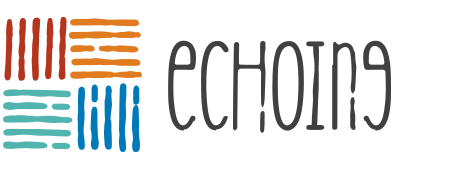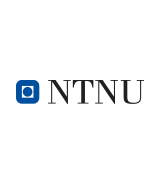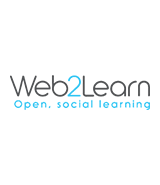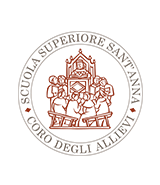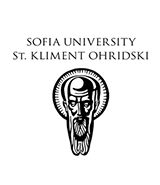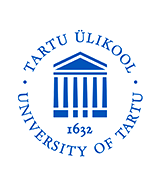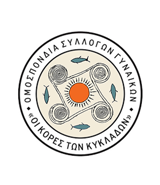Partnership
eCHOing - partnership
Partnership
Consortium composition
The consortium governing the project is adequately representing a wide range of expertise, as 4 Higher Education Institutions and 1 university library (NTNU, Scuola Superiore Sant’Anna, Sofia University ST Kliment Ohridski, University of Tartu) join hands with a web education specialist (Web2Learn) and an NGO of 16 cultural associations: OSYGY. This mix of knowledge, skills, experiences and networks guarantees a layered approach toward a diverse range of stakeholders.
![]()
NTNU
Project Coordinator
Methodology for open innovation projects driven by HEIs for the benefit of European cultural organisations
The Norwegian University of Sciences and Technology (NTNU University) is the biggest University of Norway with 42000 students and 7700 full time employees. NTNU has its headquarters in Trondheim and campuses in Ålesund and Gjøvik. It has a main profile in science and technology, but also includes the humanities, social sciences, economics, medicine, health sciences, educational science, architecture, entrepreneurship, art disciplines and artistic activities. The NTNU University library,Gunnerus branch part of the oldest Scientific Institution of Norway established in 1768. It´s mission is to educate and teach research competencies and information literacy to the students of NTNU at the following subjects: Archaeology, Cultural heritage management, Archives and Museum studies, teachers’ education and social sciences. It also serves international students and provides practice positions to students wishing to work with Digital policies and outreach activities connected to the dissemination of its special collections.

Scuola Superiore di Studi Universitari e di Perfezionamento Sant’Anna, Pisa
Scuola Superiore Sant’Anna is a public university for higher education and research in the field of applied sciences, especially Industrial and Information Engineering, Agricultural Sciences and Plant Biotechnology, Medicine, Economics and Management, Law and Political Sciences. For this project, SSSA contributions are provided by the laboratory of Perceptual Robotics (PERCRO) belonging to the Institute of Communication, Information and Perception Technologies (TeCIP Institute). PERCRO research focuses on the field of Virtual Environments, Haptics and novel human-computer interaction paradigms since 1990. In particular, the activities of the ACE group (Art, Cultural and Education) deal with the application of Virtual Environments technologies to cultural communication, heritage preservation and education.

Web2Learn
Impact report: economic and social sustainability of open innovation in Higher Education and beyond
Web2Learn (W2L) is a business partner that offers high-quality digital learning and professional training solutions and services. The company is located in Thessaloniki, Greece, and specialises in two areas of activity: a) openness and b) social connectivity. It develops services and products related to openness in education, science and policy. Web2Learn joins efforts with movements that advocate Openness, including Open Education and Open Educational Resources (OER). W2L offers learning and training in Open Education with an emphasis on developing professional skills to embrace openness (cf. EU projects INOS, GraDAna, CRETE and iPEN, and the Council of Europe’s project ORD). W2L offers also services, training and expertise on social connectivity: this refers to digitally enhanced social networking and the value of user-driven, participatory practices occurring through social media and gaming applications from a learning, training, and capacity building perspective. W2L has designed the methodology for digital engagement of youth in the cultural heritage sector as a response to the pandemic (cf. The GLAMers project) and develops models for massive online participation in MOOCs and the role of technology in shaping engagement, social participation, and social inclusion (MOONLITE project). The company is also active with services in open innovation, as W2L act as hosts of hackathons (two challenges at the DigiEduHack 2020), and as mentors at hackathons (EUvsVirus; EUvsVirus matchathon).

Sofia University St Kliment Ohridski
Report “Lessons learned and recommendations to HEIs” resulting from implementation of OI projects by HEIs for the benefit of CHOs
Sofia University “St. Kliment Ohridski” is the oldest school of higher education in Bulgaria, founded in 1888. The Centre of Information Society Technologies (CIST) is an interdisciplinary research and training unit of SU-NIS which supports national and international governmental, non-governmental and industrial organisations in developing and applying policies and strategies related to the new technologies. It is designed to strengthen and raise knowledge, innovation and entrepreneurial culture. CIST has been involved in more than 70 RTD projects, under different EU and worldwide programmes and initiatives. CIST is very proactive with initiatives and projects linked to the development of modern educational systems/platforms/methodologies aiming at the provision of knowledge and skills adequate to the contemporary requirements of the economy and the society.

University of Tartu
Online course on higher-education open innovation for the benefit of cultural organisations
The University of Tartu (UT) is Estonia’s leading centre of research and training. UT belongs to the top 1.2% of world’s best universities. University of Tartu Viljandi Culture Academy (UT VCA) has offered specialized culture education since 1952. In 1991 the former Viljandi Culture School was reorganized into college providing applied higher education in different areas of culture. After reconstruction of Estonian higher education system, the Academy joined the University of Tartu in 2005. The mission of the UT VCA is to ensure the continuity of creative intellectuals in Estonian society through higher education integrating science, art and technology. UT VCA provides education at bachelor level in the curricula of Performing Arts, Music, Estonian Native Craft, Culture Management and Community Education, and at master’s level in Sound and Visual Technology, Teacher of Arts and Technology, Creative Applications of Cultural Heritage. All the curricula are based on four focus areas – cultural heritage, community education and culture management, art creation and production, creative entrepreneurship – which convey the nature and goals of the UT VCA for the coming years.

OSYGY
Open-access publication showcasing HE engagement practices in the revival of European cultural organisations through open innovation
OSYGY (Federation of Women Association “Kores of Cyclades”) is a secondary degree legal entity founded in 2013, representing 15 non-for-profit associations and 1 for-profit association in 13 islands in the Cyclades complex in the South Aegean region. In the Greek territory, it is a unique network of rural grassroots organizations linking insularity and gender issues with the preservation of the exquisite cultural heritage and natural surroundings of the Cyclades complex. Its statutory goals include, among others, gender equality, sustainable development, the preservation and promotion of Cyclades’ cultural heritage, women’s creativity, insularity-related issues, environmental protection and social cohesion and solidarity. Its members are active agents on their respective islands, providing an intergenerational and interdisciplinary approach to daily civic and cultural life with gender mainstreaming at the heart of its actions. Since 2019, OSYGY has developed an Action Plan which aims to collect and archive all data from its members in the islands in order to forge and bring out the collective memory of women in the rural communities of the Cyclades and transform it into cultural products and services. OSYGY and its members’ experience include networking and creating synergies with local, regional and national stakeholders, organizing cultural heritage courses, events and seminars, developing projects for traditional crafts on the verge of extinction such as weaving, pottery, traditional musical instruments and raising awareness campaigns on cultural heritage issues, environmental protection and gender advocacy.
EU-prosjekt

This project has been funded with the support of the Erasmus+ programme of the European Union. The European Commission’s support for the production of this website does not constitute an endorsement of the contents, which reflect the views only of the authors, and the Commission cannot be held responsible for any use which may be made of the information contained therein.
